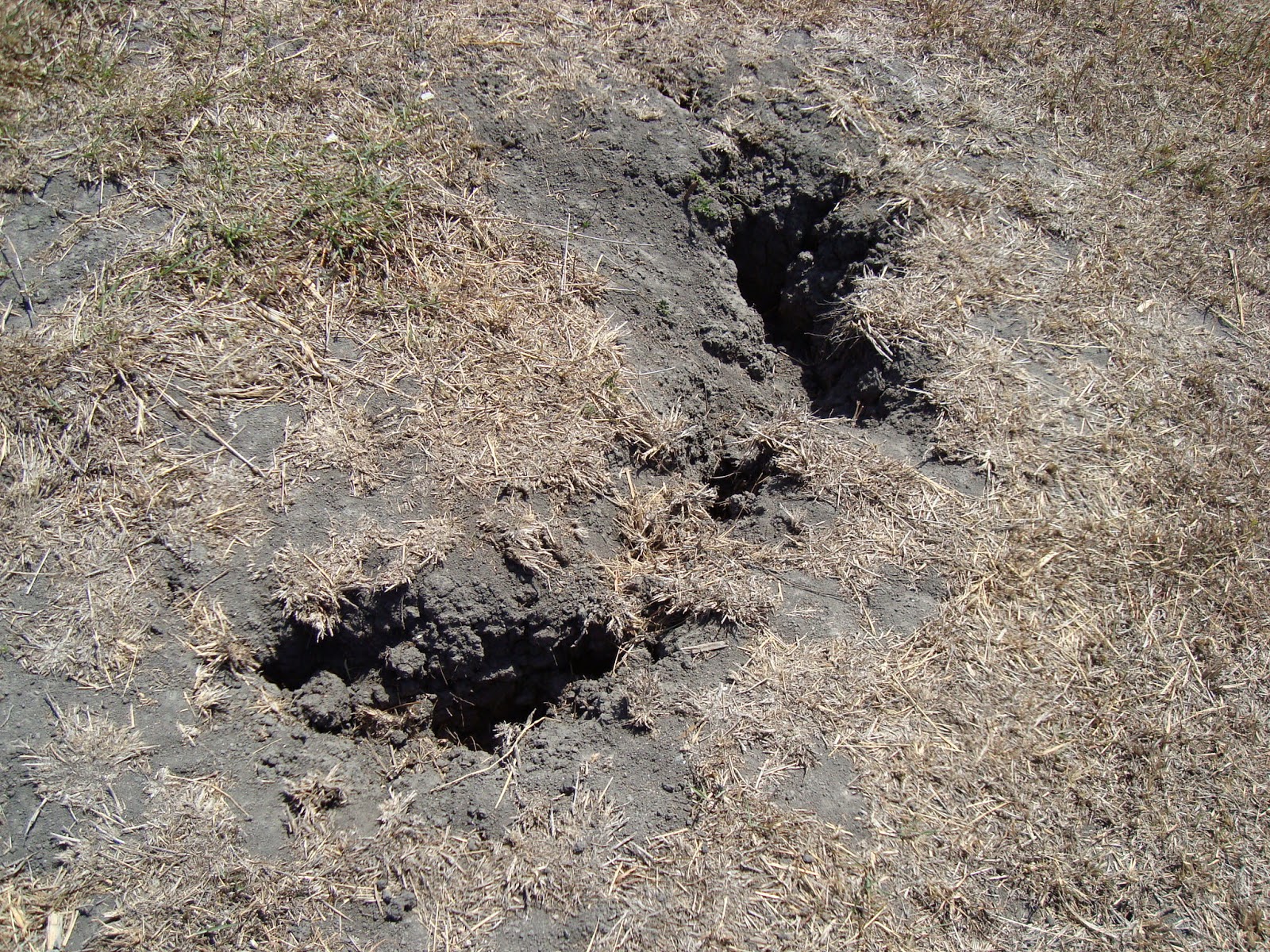The Year of the Great Drought, 2011 and the Year of the Great Border Conflict, 2014
The year of the drought --
When the lawns died,
When the frogs didn't show,
When the fires did come --
I walked along the drying stream,
Seeing the mud turn to clay.
I walked through the fields,
Seeing the dirt crack.
Then the grass dried up and
The dirt opened from cracks to crevices,
Breaches in the ground
Where I fit my fingers.
I thought of the frogs, the crawfish,
Wondered how they would survive.
Weeks turned to months with no rain.
The creeks withered.
Turtles disappeared,
Dark ponds became dark holes.
Cormorants looked in vain for fish
Where no fish were.
The crackling grass caught fire and
News crews rushed, too late, only
To find the volunteer fire department
Had arrived and watered the brush
Enough.
Decimation.
One in ten trees died that year.
All were hit, but the pines stressed early.
Their stress invited the beetles,
The beetles consumed mercilessly.
I lost two 60-foot pines that year,
Paid teams of Hispanic workers,
Young and old, lithe and experienced,
To cut the death away from my yard
And haul them away, the emptiness
Still odd when I look outside.
Memorial Park likewise lost a tenth,
The City panicked, the park's joggers complained.
But enough money replanted the lost trees.
Other parks with less appeal were not so lucky
And their skeletons remain, reminding us
How we all need those millions of drops of water
From the sky.
Those Hispanic workers --
I didn't ask if they were "legal" or not.
I don't know what that means --
If a body is "legal," if a man is "legal."
He works. He sweats. He breathes. He tires.
He loves. He hates. He feeds his family.
He worked an honest work and took my cash
And I was grateful for his labor.
Those Hispanic workers --
I didn't ask if they had wives or sons.
I don't know that they might have been
Sent back or
Sent word to their sons to come.
Sons work. Sons earn money and can
Send back that money to poor, waiting families.
Those Hispanic workers --
Are their sons now in some concrete room
With sixty other boys and men,
Caught
Trying to come to work, to sweat,
To cut down my dead trees?
As they ride yellow buses to the
Windowless, concrete rooms,
Do they look out the windows at white faces,
Full of hate and fear, hate and fear
Wondering?
Wondering why their brown skin,
Their dark hair and eyes,
Their language and religion,
Their thin clothes, thin shoes,
Their fathers' call
Makes them so hated, so feared.
So lonely.
One pine tree I chose not to cut down,
Even though dead, brown, now branchless.
It stands single in my back yard.
I rarely look up to see its death and
I mow around its disguised trunk each week.
Brown, dark, with a thinning bark,
I ignored its health until it was too late
Because its branches were so high
And out of sight. I ignored it.
And it died.
The year of the drought,
When everything turned brown,
When the fires came and
When the frogs died.
We learned for a moment
To see
And look around us,
Seeing nature as part of us.
Those children at the border --
A line written on a map,
A river of water in a dry land --
I hope we learn to look as well,
To see and look, look hard,
Seeing others as part of us.
https://plus.google.com/u/0/+BruceJMartin
Twitter @comstone


